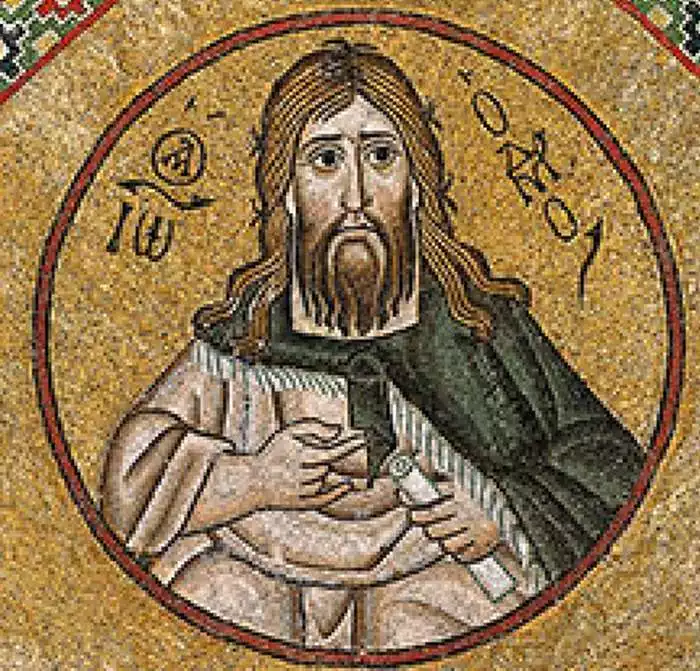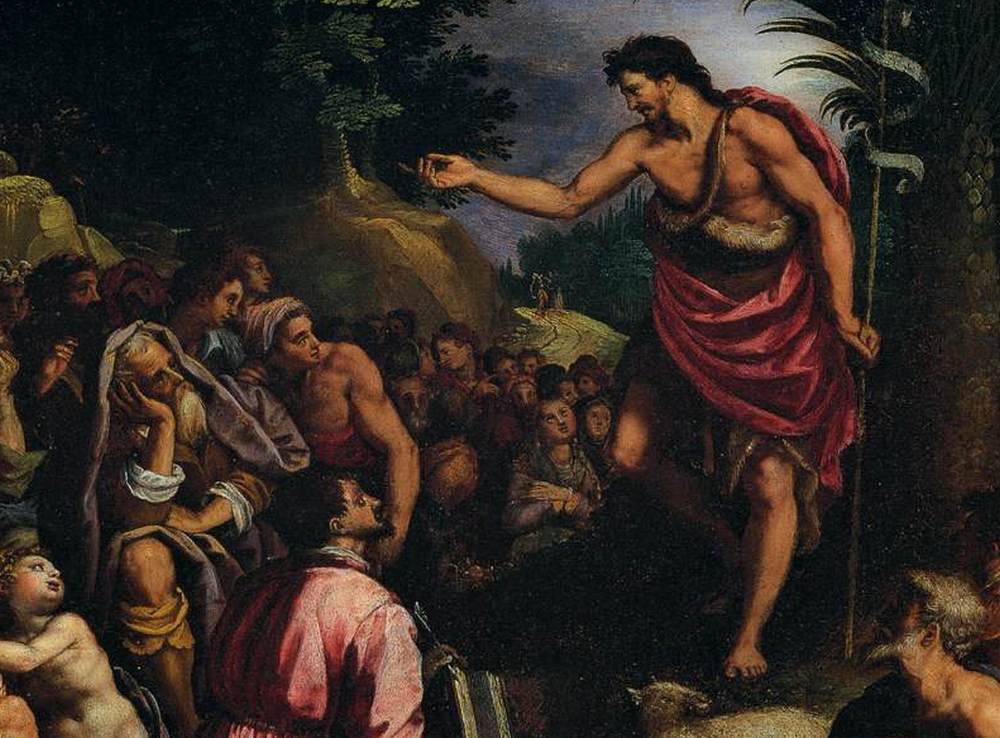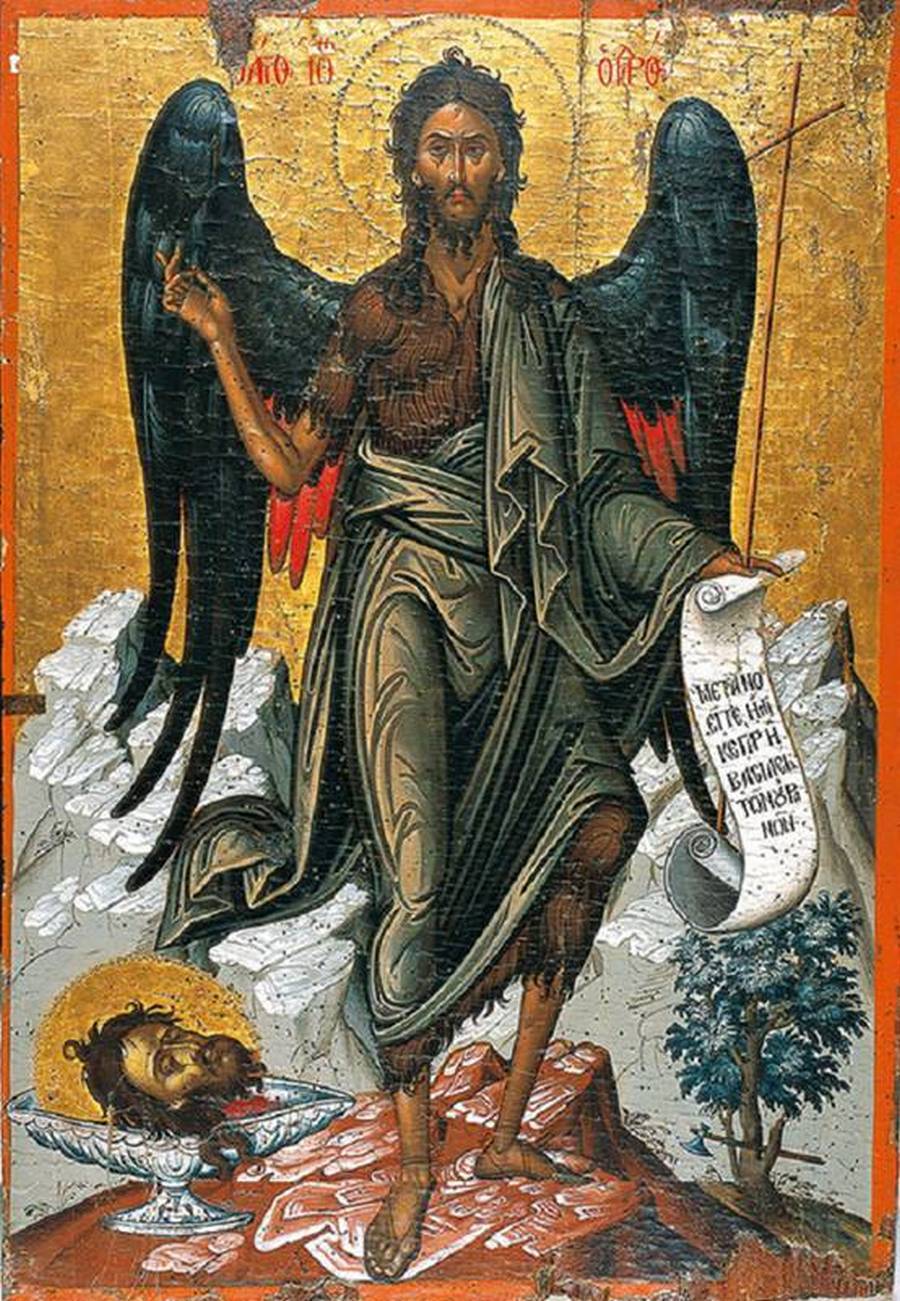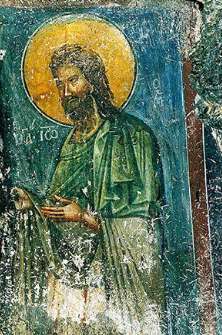
John the Baptist, born in the late 1st century BC and martyred circa 30 AD, remains a pivotal figure in Christian theology and history. Revered for his ascetic lifestyle and prophetic ministry, he is primarily recognized for heralding the arrival of Jesus Christ and administering His baptism. John’s profound impact on religious thought extends beyond the confines of Christianity, influencing various religious traditions and cultures. His life, intertwined with the narrative of Jesus, marks a significant transitional phase in biblical history. His unique role in Christianity has been a subject of extensive theological discourse, often emphasizing his call for repentance and symbolic baptism as a precursor to the ministry of Jesus. His austere life in the wilderness and his bold confrontation of moral issues set a powerful example of spiritual commitment and courage.
The Birth and Early Life of John the Baptist
The story of John the Baptist begins with remarkable circumstances surrounding his birth. As the son of Zechariah, a priest of the order of Abijah, and Elizabeth, a relative of Mary, the mother of Jesus, John’s birth was foretold by the angel Gabriel. This miraculous conception, occurring when Elizabeth was beyond childbearing age, set the stage for John’s extraordinary life.
Raised in the Judaean Desert, John adopted an ascetic lifestyle, characterized by simplicity and spiritual discipline. This period of seclusion and contemplation profoundly shaped his spiritual outlook, preparing him for his eventual role as a forerunner to the Messiah.
John’s early life, shrouded in mystery, is crucial to understanding his later ministry. His upbringing and the divine circumstances of his birth underscored his prophetic mission. In this formative phase, John developed a deep understanding of Jewish religious traditions, which later influenced his teachings and baptismal practices.
His early life, marked by divine intervention and spiritual preparation, paved the way for his pivotal role in announcing the coming of Jesus Christ. This chapter of his life, though less documented than his public ministry, offers a glimpse into the development of one of Christianity’s most significant prophets.

The Ministry of John the Baptist
John the Baptist emerged from his life of seclusion in the Judaean Desert, embarking on a public ministry that profoundly influenced the religious landscape of his time. His central message, a call for repentance in preparation for the coming kingdom of God, resonated powerfully with the people of Judea. John’s baptism, a ritual of purification, symbolized the individual’s commitment to repentance and readiness for the new era that the Messiah would usher in.
John’s ministry was characterized by an uncompromising stance on moral and spiritual integrity. He fearlessly criticized the moral failings of all, including the religious elite and political authorities. This boldness, while earning him a significant following, also garnered opposition from those in power. Despite these challenges, John remained steadfast in his mission, preparing the way for the one he described as “mightier than I.”
The impact of John’s ministry was far-reaching, creating a spiritual awakening that laid the groundwork for the acceptance of Jesus’ teachings. His role as a bridge between the Old and New Testaments is crucial, marking a transition from the prophetic traditions of Judaism to the dawn of the Christian era.
John’s Baptism of Jesus
A defining moment in John’s ministry was the baptism of Jesus Christ. This event, occurring in the Jordan River, marked the beginning of Jesus’ public ministry and symbolized the passing of the prophetic mantle from John to Jesus. The baptism of Jesus is of profound theological significance, as it represented the fulfillment of John’s prophetic mission and the manifestation of the Holy Spirit.
During this pivotal event, John initially hesitated to baptize Jesus, feeling unworthy of performing such a task for the one he proclaimed as the Lamb of God. However, Jesus insisted, stating that it was necessary to fulfill all righteousness. As Jesus emerged from the waters, the heavens opened, and the Holy Spirit descended upon Him in the form of a dove, while a voice from heaven declared, “This is my beloved Son, in whom I am well pleased.”
The baptism of Jesus by John not only signified the divine approval of Jesus’ mission but also highlighted the transformative power of repentance and baptism, central themes in John’s preaching. This momentous event marked a significant transition in biblical history, from the prophetic era of the Old Testament to the redemptive work of Christ in the New Testament.
John’s role in baptizing Jesus is emblematic of his entire ministry: preparing the way for the Messiah and calling people to a renewed relationship with God. His influence continued to resonate throughout Jesus’ ministry and beyond, shaping the foundational beliefs and practices of early Christianity.

The Imprisonment and Martyrdom of John the Baptist
John the Baptist’s fearless condemnation of Herod Antipas’ unlawful marriage to Herodias, his brother’s former wife, led to his imprisonment. This act of moral courage exemplified John’s unwavering commitment to speaking truth to power, regardless of personal cost. His imprisonment, however, did not silence his influence; instead, it magnified his legacy as a martyr for righteousness.
While in prison, John’s resolve remained unshaken. His disciples continued to visit him, through whom he remained connected to the outside world. In a moment of human vulnerability, John sent his followers to Jesus, seeking confirmation of his messianic identity. Jesus’ response, highlighting the miracles and teachings that fulfilled prophetic expectations, reassured John of his foundational role in the unfolding divine plan.
John’s martyrdom, ordered by Herod Antipas at the behest of Herodias’ daughter, Salome, was a tragic yet pivotal event. His beheading marked a somber moment in biblical history, underscoring the cost of prophetic truth-telling in a morally complex world. John’s death, though a moment of profound loss, served as a testament to his enduring impact on religious thought and practice.
John the Baptist’s Legacy in Christian Tradition
John the Baptist’s influence extends far beyond his earthly life, deeply embedded in Christian tradition and theology. He is revered as a major saint in various Christian denominations, with numerous churches and religious institutions bearing his name. His life and ministry are commemorated through feast days, reflecting his significance in the liturgical calendar.
John’s role as the precursor to Christ is a recurring theme in Christian art, literature, and theology. He is often depicted in religious iconography, symbolizing his role in heralding the arrival of Jesus and emphasizing the importance of repentance and baptism. His ascetic lifestyle and prophetic ministry continue to inspire religious and spiritual practices focused on simplicity, moral integrity, and spiritual dedication.
The enduring legacy of John the Baptist is also evident in his influence on other religious traditions. His life and teachings have been incorporated into Islamic theology, where he is known as Prophet Yahya, revered for his piety and devotion.
John’s impact on religious thought and practice transcends denominational boundaries, making him a universal figure of spiritual significance. His legacy continues to inspire individuals and communities seeking spiritual depth and moral clarity in a complex world.

The Enduring Message of John the Baptist
John the Baptist’s influence in Christian thought extends beyond his historical presence, deeply ingrained in the spiritual consciousness of believers. His call for repentance and ethical living resonates across centuries, serving as a constant reminder of the need for personal and communal transformation. His emphasis on the imminent arrival of God’s kingdom challenges individuals to examine their lives in the light of divine truth and justice.
John’s role as the forerunner of Christ highlights the continuity between the Old and New Testaments, bridging the prophetic traditions with the teachings of Jesus. His ministry, though brief, was pivotal in setting the stage for the Christian message of salvation and redemption. The baptism he administered symbolizes a break from the past and the initiation into a new life of grace.
In a world often marked by moral ambiguity, John’s unwavering commitment to truth and righteousness offers a model of spiritual integrity and courage. His life invites believers to a deeper understanding of their faith and a renewed commitment to living it out in their daily lives.
John the Baptist remains a towering figure in Christian history, his life and teachings forming a cornerstone of Christian doctrine and spirituality. His message of repentance, ethical living, and preparation for the coming of the Messiah continues to inspire and challenge believers to this day. As a prophet, martyr, and precursor to Christ, John the Baptist’s legacy endures, echoing through the ages as a beacon of hope and a call to authentic spiritual renewal.
Feast Day: January 7
References
- Cross, F. L., and E. A. Livingstone, editors. “The Oxford Dictionary of the Christian Church.” Oxford University Press, 1997.
- History.com. “Saint John the Baptist: Where Is His Head?” history.com. Accessed 25 December 2023.
- PBS. “From Jesus to Christ: The First Christians – Portrait of John the Baptist.” pbs.org. Accessed 25 December 2023.
- Smith, Huston. “The World’s Religions.” HarperOne, 1991.
- Theses.gla.ac.uk. “John the Baptist in Christian and Islamic Writings.” theses.gla.ac.uk. Accessed 25 December 2023.
- Zondervan Academic. “Who Was John the Baptist?” zondervanacademic.com. Accessed 25 December 2023.
